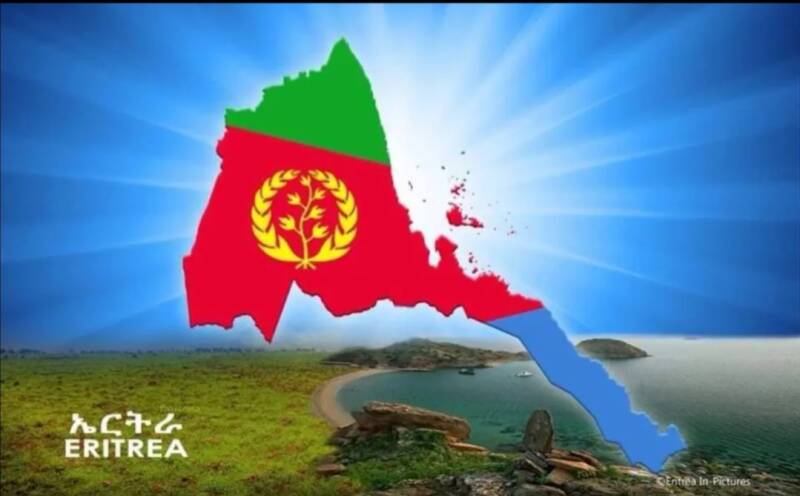By Merhawi Kubrom
Eritrea's journey from Italian colonization in 1890 to its esteemed status in the Horn of Africa by 2024 marks a significant departure from the norms of the old world order. Despite enduring foreign domination and internal strife, Eritrea has emerged as a symbol of self-reliance, respect, and defiance against systemic injustice on the global stage.

During the colonial era, Italy asserted control over Eritrea, later followed by British occupation during World War II, setting the stage for Eritrea's struggle for sovereignty. In 1952, despite the global push for decolonization, Eritrea's aspirations for independence were thwarted with its federation with Ethiopia, sparking resistance.
(Left) Franklin D. Roosevelt, President of the USA and his ally Emperor Haile Selassie of Ethiopia (February 1945); (right) the Ethiopian Emperor on his state visit to the United States (1967) (1,2)
The pivotal moment arrived in 1961 when the Eritrean Liberation Front (ELF) initiated an armed struggle for independence. Over the ensuing decades, Eritrean fighters, led by the Eritrean People's Liberation Front (EPLF), waged a determined guerrilla war against the Ethiopian regime, faced with a formidable opponent. Global powers such as the United States and the Soviet Union were supporting the Ethiopian military, making it the strongest in Sub-Saharan Africa.

Leonid Brezhnev, the head of state of the Soviet Union (1964-1982), and his ally Mengistu Haile Mariam, the Chairperson of the Derg and Head of Ethiopia from 1974-1991, at the Moscow airport in 1978 (3)
Despite the odds and lacking external support, Eritrean freedom fighters displayed remarkable resilience and heroism and sustainable strategies for developing a remarkable society beyond the fight for independence. Central to Eritrea's liberation was its unwavering commitment to self-reliance, contrasting with the dependency often seen in liberation movements in other nations. This determination underscored Eritrea's resolve to preserve its sovereignty and autonomy.

The Eritrean People's Liberation Front (EPLF) based on the Principles of Self-reliance
However, achieving independence in 1991 did not bring peace. Eritrea faced relentless external pressures, particularly from Western powers seeking to maintain the old world order. Despite unfounded accusations and unjust sanctions, Eritrea remained resilient, refusing to yield to external interference or compromise its principles. Following independence, Eritrea faced unprovoked attacks by neighboring states, falsely justified by border conflicts, aimed at destabilizing the nation. Ethiopian aggression from 1998 to 2000, driven by Western agendas, and enduring American sanctions since 2007 have compounded Eritrea's challenges, exacerbating the impact of recurring droughts and entrenched poverty. Nevertheless, the Eritrean people persisted, fortified by their resilience and unwavering resolve. Their journey epitomizes defiance in the face of adversity, inspiring global admiration.

The strong leader of Eritrea, President Isaias Afwerki, eloquently expressed the noble values of the Eritrean people in his public speech on May 24, 2019
Today, as invitations to engage with Eritrea reach the world stage without compromising its values, its resurgence is undeniable. From China to Russia and now America, Eritrea's prominence is unmistakable. The foresight of Eritrea's founding father, Sebhat Efrem, reflects the nation's trajectory, positioning Eritrea as a center of gravity in the Horn of Africa and beyond.

The brilliant Eritrean general Sebhat Efrem (4)

The strategic location of Eritrea in the Horn of Africa and around the globe (5)
As Eritrea continues charting its course, it serves as a beacon of hope and inspiration for nations aspiring to independence and self-determination. Its journey from colonization to esteemed nationhood underscores the power of resilience, unity, and unwavering determination in challenging and reshaping the world order.
Image source:
1. https://en.m.wikipedia.org/wiki/File:Emperor_Haile_Selassie_I_with_President_FDR.jpg
2. https://commons.wikimedia.org/wiki/File:Haile_Selassie_state_visit_1967_%284%29.jpg
3. https://www.iwooket.org/ethiopia-and-russia/mengistu-hailemariam-and-breznev/
4. https://www.facebook.com/photo/?fbid=371565756265989&set=pb.100063493579281.-2207520000&locale=de_DE
Disclaimer:
The views and opinions expressed in this article are those of the author and do not necessarily reflect the views or positions of the Eritreische Stimme.


Kommentar hinzufügen
Kommentare
Good job, finde sehr vorbildlich die jungen Generationen die wahre geschichte unserer Land mitzuteilen, wünsche euren Team viel erfolg.
Herzlichen Dank für deine Worte, Teclesenbet!